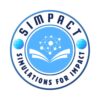In today’s fast-changing world, education is no longer just about textbooks, exams, and rote learning. For students in Classes 11 and 12, especially those exploring entrepreneurship — learning is becoming more joyful, practical, and meaningful than ever before. Thanks to the National Education Policy (NEP) 2020, the focus is shifting from pressure to passion, and from memorizing facts to building real-world skills.
Why Joyful Learning Matters
Teenagers are full of energy, curiosity, and creativity. But traditional classroom models often dull that spark. Joyful learning is about rejuvenating that spirit by allowing pupils to explore, experiment, and express themselves. It’s learning that doesn’t feel like a burden — instead, it feels like creating, discovering, and growing.
- Learning by doing: Create mock businesses, sell real products, or launch social projects.
- Work in teams: Collaborate with classmates on innovative ideas.
- Face real-world challenges: Pitch ideas, gather feedback, and iterate.
- Fail and try again: Understand that failure is part of success.
This kind of learning doesn’t happen only through lectures. It needs workshops, internships, competitions, mentorship — and most of all, a space to explore freely.
Hands-On Learning in Action
Aligned with NEP 2020, many schools now offer:
- Student-run business clubs
- Startup simulation games
- Skill-based workshops (marketing, design, financial literacy)
- Internship opportunities with local businesses or online platforms
- Project-based assessments instead of just exams
For instance, a group of Class 11 students might be asked to build a business around sustainable products. They’ll research markets, design packaging, calculate costs, and pitch their plan — all while learning fundamental skills like teamwork, creativity, and financial planning.
Blending Passion with Purpose
Subjects in senior secondary (like Accountancy, Business Studies, Economics, or even Arts) can all feed into an entrepreneurial spirit when taught with the right approach. NEP encourages interdisciplinary learning, so a student interested in fashion can blend design with business; another interested in tech can combine coding with product development.
Teacher plays the role of facilitator and guide
Educators are no longer just instructors — they are facilitators and guides. They help students explore ideas, ask more profound questions, and connect learning to life. The classroom becomes a safe space to innovate, not just to recite.
Final Thoughts: Learning That Lights You Up
For students in Classes 11 and 12, these are not just years to prepare for exams — they’re years to explore who you are and what you love. Business simulation offers a joyful, dynamic way to do that. And when learning becomes joyful, students stop studying to pass — they start learning to build, to dream, and to lead.
Let’s create classrooms that feel less like factories and more like launchpads — because the future belongs to the ones who can think differently, take risks, and bring their ideas to life.

